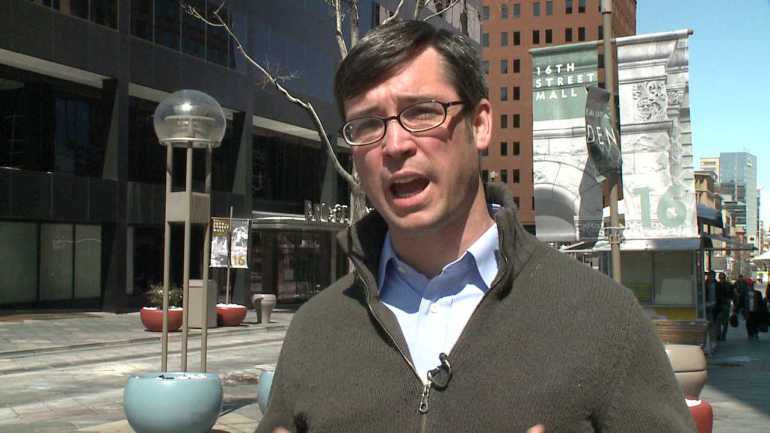Richmond city officials want state to stop meddling
State law may trump local ordinances, but that does not mean Richmond City Council is going to lie down when Virginia legislators try to unilaterally impose policies on the city.

By Cort Olsen
State law may trump local ordinances, but that does not mean Richmond City Council is going to lie down when Virginia legislators try to unilaterally impose policies on the city.
That was especially the case in connection with two bills that the General Assembly considered during its recent session. One would have supported a disgruntled vendor in its dispute with the Richmond airport; the other would have diluted the authority of the Richmond School Board.
Although the bills eventually died, they left city officials feeling that state government was interfering in local affairs. As a result, City Council may take a more proactive role during future legislative sessions concerning bills that would have a local impact.
Councilman Parker Agelasto suggested that the council regularly monitor and discuss legislation that could affect Richmond.
For example, Del. Chris Jones of Suffolk–more than 90 miles east of Richmond–proposed a bill to limit the charges that Richmond International Airport can assess on ground transportation providers. HB 1889 would have required the airport to treat Park ‘N Go, which offers parking and shuttle service to and from the Richmond airport, as if it were a taxi service.
Taxis pay a flat per-trip fee to enter the airport. The airport charges Park ‘N Go an 8 percent gross receipts tax, on grounds that the business depends entirely on the airport for its customers–like an airport-based rental car company. HB 1889 ultimately was killed in the House Transportation Committee last month.
Councilman Charles Samuels brought HB 1889 to the attention of his colleagues. He noted that airports throughout Virginia and across the nation charge companies like Park ‘N Go a gross receipts tax. “The sole purpose of these businesses is to make profit from the location of the airport,” Samuels said.
Under federal law, Richmond International and other airports cannot receive federal, state or local funding and must operate as self-sustaining entities.
Park ‘N Go grossed roughly $1.5 million in 2013, and the 8 percent access fee amounted to about $118,000. Samuels said Park ‘N Go passes the access fee on to its customers.
Samuels proposed a resolution opposing HB 1889 and any other state attempts to limit local airport fees. The council adopted the resolution.
Samuels said the principle goes beyond airport fees. “Funding to local government, 599 funding, eminent domain issues, local exemptions for real-estate taxes to surviving spouses of those killed in action–we pay attention to a large number of papers in the General Assembly,” he said.
After all the discussion about HB 1889, Agelasto raised a question about another bill.
“I wish that we had followed a similar process when it comes to HB 2253,” he said. That bill sought to create a commission to determine which Richmond schools should be renovated or replaced. The bill was sponsored by Del. Delores McQuinn of Richmond, a former member of Richmond City Council and the Richmond School Board.
Agelasto said that the School Board already has the authority to evaluate school facilities and that the bill was unnecessary.
“The legislation at the General Assembly was preempting action of the School Board and this task force,” Agelasto said. “It was a concern of council members –not all, but some–and of the School Board that this bill was poor timing.”
McQuinn’s bill subsequently died in the House Education Committee.
Agelasto said the council intervenes in General Assembly affairs primarily when the issue affects the city budget. “What money do we have to complete what work, and where?” Agelasto said. “The only consideration the council needs to make is, what money do we have?”
City Council has passed several resolutions like the one addressing access fees at the Richmond airport. Agelasto said these resolutions do have some impact on legislators.
“If the General Assembly representatives are unaware of public support, they can look at these resolutions and understand where the city’s public support is coming from,” Agelasto said. “For example, if Del. Betsy Carr is trying to convince a colleague to pass a piece of legislation, she could share a copy of our resolution explaining our position.”
Agelasto said council members go on a retreat every fall to discuss what they would like to ask of the General Assembly. “The council goes through a long agenda, and we whittle it down to a handful, called the short list,” Agelasto said.
The council’s short list is created before bills in the General Assembly are introduced. “We don’t know what bills will be introduced,” Agelasto said. “General Assembly members will get the sense of our position prior to their deadline.”
Councilman Charles Samuels. Photo by: VCU Capital News Service
-
Recommend this
on Facebook -

Report an error
-

Subscribe to our
Weekly Digest




There are no reader comments. Add yours.